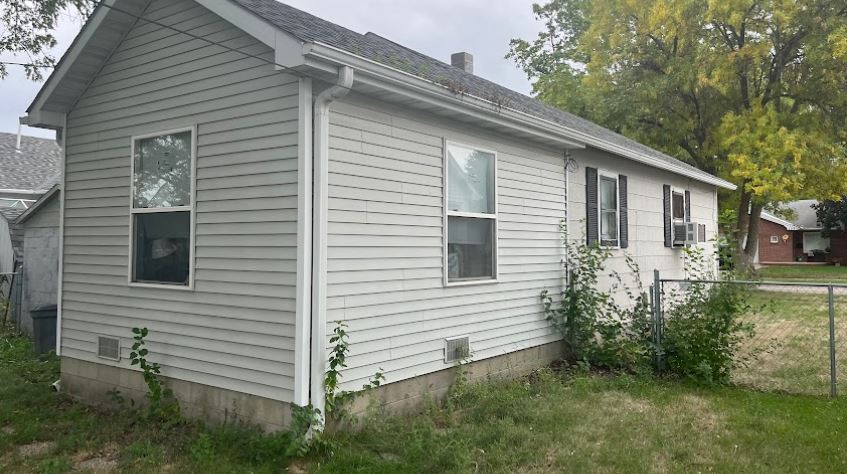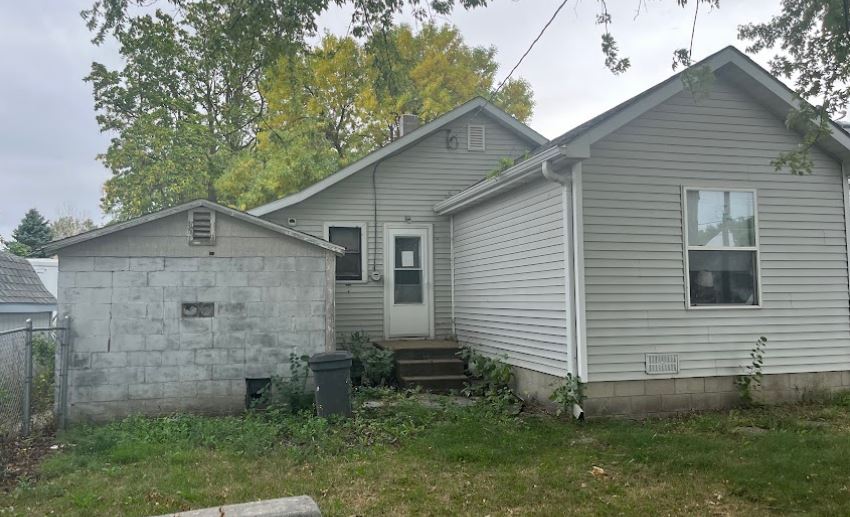If you've recently discovered that your home has foundation issues, you might be feeling overwhelmed and unsure of what to do.
Foundation problems can be expensive to fix and can make it difficult to sell your home.
But don't worry, you can still sell your home and move on to a new chapter in your life.
In this post, I'll go over everything you need to know about selling a house with foundation issues.
Can You Sell A House With Foundation Issues?
You can sell a house with foundation issues, but it will be super hard to sell.
Foundation issues are a major turnoff for many buyers, and you'll get a lower selling price - around 10 - 15% lower than the market value!
Plus, most banks won't lend the money to buyers if the damage is serious.

However, there are still buyers out there who may be interested in your house, such as cash buying companies or investors who are willing to take on the repairs themselves.
Or you can always repair the foundation and then sell it for the normal market value.
Let me break down your options.
Also Read: Other structural issues in homes
Option One - Sell The House As-Is
Selling the house as-is, without fixing the foundation, might be a good idea if you're in a tight financial situation or you need to sell quickly for any reason.
You can list it on the open market, but it will take a long time to find a buyer.
And when you do find buyers, everyone of them will likely lowball you on the price.
If you want to go this route, your best bet is to sell it to a cash buyer.
They don’t need funding from banks and they can close the sale quickly - even within a week!
Sure, their offers are low, but you are going to get a lower price anyway and have to deal with the hassle that comes with a normal house sale along with agent commissions and closing costs.
Selling to a cash buyer eliminates all that.
Also Read: how to avoid closing costs when selling a house
Option Two - Repair And Sell
The other option is to get the foundation repaired before you list the house for sale.
This route might help you get a higher selling price, since buyers will see the house as move-in ready. However, the repairs can be quite costly and time-consuming.
So you'll need to carefully weigh the potential return on investment.
Here’s a quick guide on repairing and selling a house with foundation issues:
#1 Get An Inspection
The first step is to get a professional inspection. You need to know exactly what you're dealing with in terms of the foundation damage.
Schedule a thorough inspection by a structural engineer.
They'll assess the damage, determine the cause, and recommend repair solutions.
Their report will give you a clear picture of what needs to be fixed and an estimate of the cost.
This inspection is important because it provides a solid basis for the repairs and can also reassure potential buyers that the problem has been professionally assessed.
#2 Hire A Contractor
Your next major step is hiring the right contractor for the job.
Don't just go with the first one you find - foundation work is specialized and complex.
Start by asking friends, neighbors, or your engineer for referrals of reputable local companies. Look them up online and read plenty of customer reviews.
Also Read: contractor failed inspection who pays
It's a good idea to get quotes from at least 3 different contractors and compare pricing along with their proposed solutions.
Really take the time to vet each candidate thoroughly.
A good contractor will explain the work that needs to be done, provide a timeline, and offer a warranty on their repairs.
#3 Do The Repairs
Once you've selected a contractor, they can start the actual repairs.
The contractor should provide you with a clear timeline and keep you updated throughout the entire repair process.
For smaller and less serious cracks, the solution might be to underpin the foundation. This means extending it downwards to reach more stable soil.
However, if the damage is severe, helical or push piers may need to be installed.
These piers are driven deep into the soil that can bear weight, to re-stabilize and lift the foundation back to its original position.
In some situations, the contractor might have to re-pour certain parts of the foundation.
#4 Disclose The Issue
Most states require sellers to complete a disclosure form that asks about known defects, including foundation issues.
You're legally obligated to disclose the structural issue even if it's in the past.

Trying to hide or downplay the issues is not only unethical, but could open you up to potential legal consequences down the road.
So be honest and thorough when filling out this form.
And provide copies of the engineer's inspection report, repair plan, scope of work, and invoices for the completed repairs.
This shows buyers you've addressed the problem responsibly and professionally.
#5 List And Sell The House
After the repairs are done and the foundation is stable, it’s time to list your house.
The selling process is pretty much the same as selling a normal house.
Hire a good real estate agent. They'll take care of marketing, and will guide you through the negotiation and closing processes.
And highlight the recent repairs and inspection reports in your listing to reassure buyers.
Be prepared to answer questions from buyers about the foundation and the repairs.
Also Read: no response from buyer after home inspection
All in all, your home should attract more interest and potentially sell for a higher price than it would have if sold as-is.
FAQs
Will A Bank Finance A House With Foundation Problems?
Most banks won't finance a house with foundation problems. However, if they might approve it if the issues are minor, and if a professional engineer verifies the house is structurally sound.
Expect stricter requirements like a larger down payment or higher interest rates.
Will Fha Approve A House With Foundation Issues?
FHA can approve a house with foundation issues, but similar to banks, only for minor problems. They offer FHA 203(k) loans for houses needing repairs, which can include foundation work.

